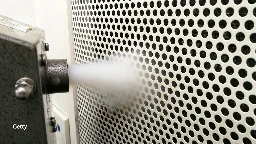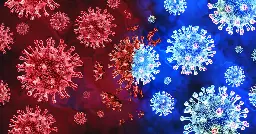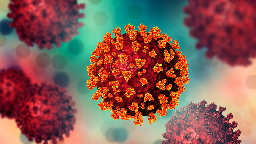This fact sheet provides basic information about chamomile—common names, usefulness and safety, and resources for more information.

There’s very little information on chamomile’s effect on insomnia. A 2019 review of six small studies included only one study on insomnia. That one study found that chamomile had no benefit for insomnia. The same 2019 review looked at five studies on chamomile’s effect in non-insomnia populations. The review concluded that chamomile might help improve the individual component of sleep quality over a 4-week period in people without insomnia.
Ingredients in order: chamomile, spearmint, lemongrass, tilia flowers, blackberry leaves, orange blossoms, Hawthorn, rosebuds
Lilly said people on the drug donanemab slowed decline by 35% based on a measure of daily activities such as driving and talking about current events.
But at a global genome-editing summit, exciting trial results were tempered by safety and ethical concerns.

Would have rather posted this to a neutropic sub, but we don't have one on the Lemmyverse, but loosely related
There is no scientific evidence that curcumin reduces inflammation, as of 2020.[10][11][45] There is weak evidence that turmeric extracts may be beneficial for relieving symptoms of knee osteoarthritis,[46] as well as for reducing pain and muscle damage following physical exercise
In the past 5 years, there have been several clinical trials investigating the potential anti-aging effects of metformin in humans. One notable study is the Targeting Aging with Metformin (TAME) trial, which aims to test whether metformin can delay or prevent age-related diseases such as cardiovascular disease, cancer, and cognitive decline. The trial has completed its planning phase and is currently recruiting participants. Other studies have also investigated the potential benefits of metformin for specific age-related conditions, such as cognitive impairment and frailty. While more research is needed to establish the safety and efficacy of metformin as an anti-aging therapy, these studies suggest that it holds promise as a potential tool to promote healthy aging.
Nicotine is unusual in comparison to most drugs, as its profile changes from stimulant to sedative with increasing dosages, a phenomenon known as "Nesbitt's paradox" after the doctor who first described it in 1969
Previous studies have found a U‐shaped relationship between mortality and (weekday) sleep duration. We here address the association of both weekday and weekend sleep duration with overall mortality. A cohort of 43,880 subjects was followed for ...

People who have drunk a moderate amount of alcohol before a traumatic event report more flashbacks than those who have had no alcohol, according to new research.

So if you know with 100% certain you're about to be tortured for 5 minutes, not a bad idea to get hammered. But if they wait til you sober up a little then torture you, it'll be worse.
No wonder the super-rich are funding anti-ageing research. Getting older must look lovely when you can afford your own climate-controlled island, writes Emma Beddington

If you recently tested positive for COVID-19, you might be wondering how long you’re able to get others sick.
An inexpensive type of portable filter efficiently screened SARS-CoV-2 and other disease-causing organisms from hospital air.

The researchers found "a staggering" 90% of people living with long COVID only had a mild illness to start — but people who were hospitalized were more likely to develop the lasting symptoms.

However, because the vast majority of COVID-19 cases do not require hospitalization, many more cases of long COVID have arisen from these milder cases despite their lower risk.
New COVID variant XBB.1.5 is very contagious, meaning everyone is at risk for infection even if you've already had COVID. Here's what that means.
New COVID variant XBB.1.5 is very contagious, meaning everyone is at risk for infection even if you've already had COVID. Here's what that means.

The post-COVID syndrome known as long COVID has four major subtypes defined by different clusters of symptoms.

Researchers say Paxlovid and other antiviral medications can help people with even mild COVID-19 symptoms lower their risk of serious illness

Experts worry that it could start a wave of new infections and reinfections

